You bought the test. You’re sure you followed the instructions exactly. Yet there you are staring down at the faint line on your pregnancy test and you’re trying to figure out exactly what it means. Am I pregnant? Am I not pregnant? And it was all supposed to be so simple.
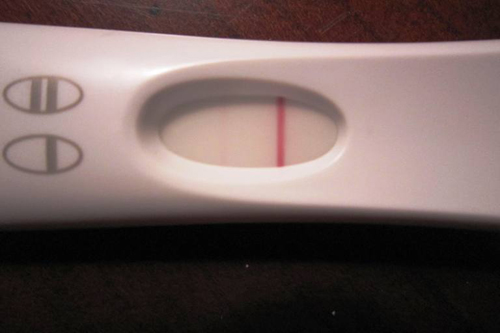
A lot of things could cause a faint line on a pregnancy test, but first, let’s take a moment to talk about how soon you should even be considering taking that test. While there’s no doubt that waiting can be absolutely agonizing if you’ve been trying to conceive, it’s still important to wait at least the minimum amount of time before you test or you could find yourself disappointed for no reason.
Home pregnancy tests work by detecting a hormone called human chorionic gonadotropin, or hCG. This hormone is produced very early in pregnancies. A substance in home pregnancy tests will change color when it is combined with that particular hormone causing that familiar pink link to appear. A pregnancy test will only read as positive if the level of hCG in the urine stream is high enough. If you’re not far enough along in your pregnancy and the test you’re taking isn’t sensitive enough, the test may not read the level of hCG as high enough to indicate pregnancy, leading to false negatives.
With all that said, false negatives do happen with home pregnancy tests. False positives? It can happen technically speaking but the chances of a false positive are extremely slim. A positive result on your home pregnancy test means there is a 99.9% chance that you are pregnant. Pretty good odds, I’d say.
Newer, more expensive home pregnancy tests are designed to detect pregnancy earlier. They’re more sensitive do they’re able to detect lower levels of hCG in the urine stream. The problem is that by detecting lower levels, you may wind up with that confusing faint line on the pregnancy test. So on that subject, what does a faint line on a pregnancy test mean? Well, it could mean a few things. Let’s take a look at the most likely causes.
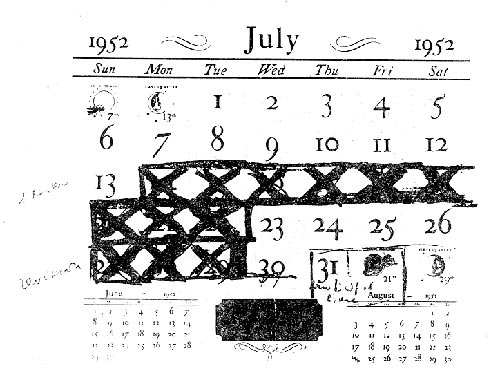
You’ve tested too soon in your pregnancy or miscalculated when to expect your period.
Both of these are common culprits for the faint line on a pregnancy test. The rate of hCG in your body increases incredibly quickly in the beginning of your pregnancy so testing again could give you a stronger line. You should really wait until after you’ve missed your first period but again, the waiting can be torture. You should, at the very bare minimum, wait to test until at least ten days have passed since ovulation. If you don’t, the accuracy of the home pregnancy test will be severely diminished.
Thinking you were supposed to get your period before you were actually supposed to get your period is also a pretty good way to find yourself with one of those troublesome faint lines. If you miscalculated your cycle, you’re likely going to take the test early. We’ve just talked about that so there’s not really much point in going into it any deeper, but there are ways to avoid this issue. The best way to avoid miscalculating your period while you’re trying to get pregnant is actually pretty easy – chart your cycle carefully. Pick up a calendar at your local discount store and use it only for your cycle. Mark when your period starts, when it ends, when you have sex and estimate when your next period will be. Remember as well that things like stress, diet and sleep can impact your cycle. Try to allow a day or two after you expect your period just in case it’s just running a little late. This can also help you ensure you get a clear answer on your pregnancy test.
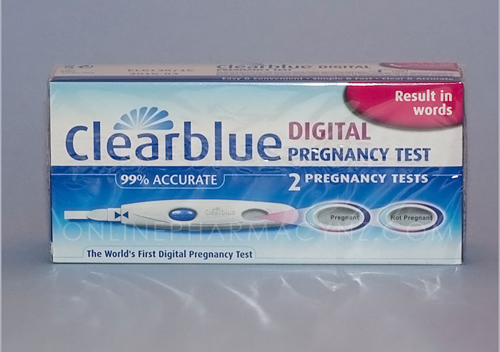
You’ve used a test that hasn’t been stored properly or a test that has expired.
Make sure you read the instructions on the box carefully in regards to storage. Some home pregnancy tests – the cheap ones and the more expensive ones – have very specific storage requirements. For example, storing your test in the glove box in your car is often a bad idea. It can get either very hot or very cold in the glove box depending on the weather outside and that can hurt the test, causing a faint line when you take it.
Expired tests are another leading cause of that faint line on a pregnancy test. It’s important to always check the expiration date on the home pregnancy test you want to buy before you even buy it. Some stores aren’t great about taking expired products off the shelves, especially when the item in question isn’t something that’s typically thought of as something that can expire. An expired test may not work properly and could give you the faint line of uncertainty.
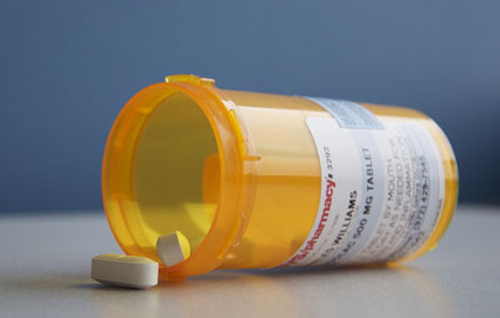
You’re taking a medication that contains hCG.
If you’re taking fertility medication, have undergone fertility treatments or are taking some other form of medication that contains hCG, a home pregnancy test may pick up the presence of that hormone and result in a faint line or even a false positive. In most cases, this is something your doctor would have discussed with you when you began taking the medication or started the treatment. It’s important to listen to what your doctor tells you about any medication you’re taking no matter what that medication is. Your doctor will probably ask if you’re trying to conceive if you’re being prescribed medication that can cause a faint line. Remember though, if you have sex, theirs is always the chance you could get pregnant so be honest so you can get the most accurate information.
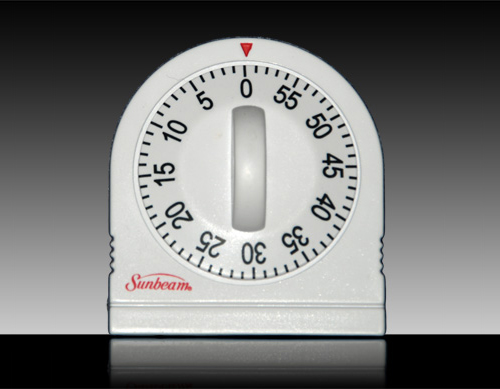
You’ve taken more time to check the test than the manufacturer recommended.
Taking a home pregnancy test can be a very nerve wracking experience especially if you haven’t exactly planned on having to take one or have been trying to conceive without success. For that reason, it can be very difficult to convince yourself to look at the test results. It is imperative that you don’t wait too long though. Some home pregnancy tests will continue working on analyzing the urine while you’re working on building up the nerve to check. That can sometimes cause a faint line to appear. If the test says to wait two minutes, you don’t have to check at exactly two minutes but don’t wait around much longer than what is recommended or you could find yourself staring at that dreaded faint line.

Your urine is too diluted.
Most home pregnancy tests on the market today no longer ask you to use the first bathroom trip of the day to do the test but if you’re planning on doing the test early on in your possible pregnancy, it’s still a good idea to do so. The first urine of the day won’t be as diluted as urine from later in the day. This can make all the difference in the world. During early pregnancy, the levels of hCG in your urine stream will be much lower than later in your pregnancy. As the day progresses, you’re going to be drinking water, soda, juice or other beverages that will dilute your urine making it harder for your home pregnancy test to pick up the hormone.











